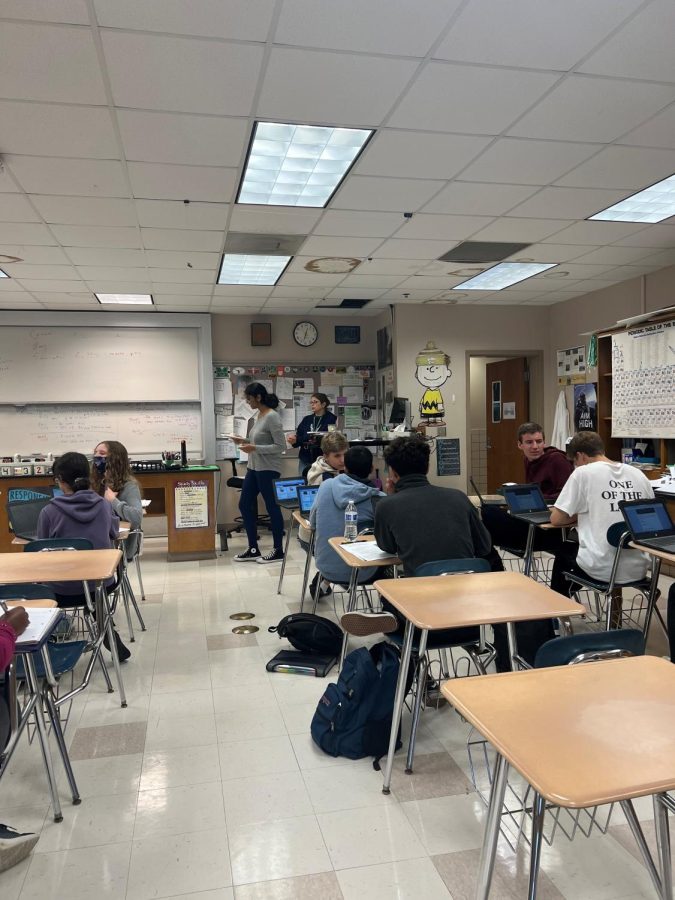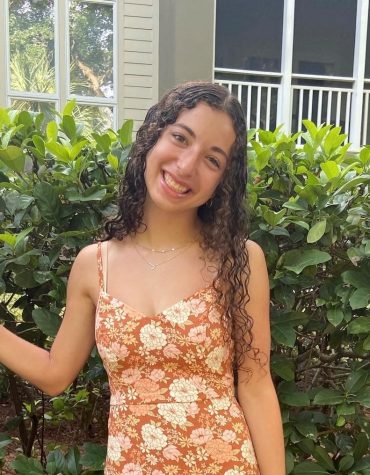Students challenge themselves by taking AP courses
The AP Chemistry class, instructed by Mrs. Christina McClure, is working on net ionic equations.
November 3, 2022
Students have been enrolling in a large number of AP courses, as students and staff agree there are benefits to taking challenging courses.
Rachel McBride is the 10th-grade counselor and thinks AP courses help a student become prepared when it comes time to take college classes. She said, “AP Courses really give students an idea of what college-level material is like and how to manage challenging content and workload. It also gives them the opportunity to develop important skills for success after high school: problem-solving, researching, collaborative work, creative thinking, while learning about something they love or have interest in.”
McBride encourages students to take AP courses because they can show colleges more about a student’s interest. She said, “Colleges definitely look at a student’s course load when they are determining acceptance. If a student takes challenging courses, it is likely to help them as it shows passion for a subject and a desire to be challenged to advance their learning.”
Sophomore Philip Golczak takes AP classes based on his interest as AP classes provide an extra curriculum. He said, “For AP Biology, I really liked Honors Biology last year so I decided to take that, and it’s one of my interests and same thing with Chemistry.”
According to McBride, AP courses also can be counted as college credit. She said, “Students may also earn scholarships based on the AP courses they take, so there are many benefits since AP courses/exam scores are widely accepted for college credit nationally and worldwide.”
John Sullivan, the AP Seminar teacher says his class opens up AP Research, giving the student an AP Capstone diploma. He said, “So it does count as two electives for most colleges, but it really allows students to hone in on his/her own interests, so they can market those to a college when they are applying.”
McBride suggests students don’t have to fully worry if they do not pass the AP test. She said, “When considering taking an AP course, is that, even if a student doesn’t score a three or higher, which is generally the cut-off for college credit, studies have shown that students are still more prepared for college and the ‘real world’ because of their experience taking an AP course.”
As AP courses are one of the highest types of courses in the school, Golczak takes AP classes to extend his thinking to a higher level. He said, “My goal is just basically to further my knowledge and by taking AP classes, I usually just hope to achieve a higher level of academic excellence.”
Sullivan thinks his AP class helps to adjust to specific people’s needs. He said, “Students are able to learn in a variety of ways and their needs are met. For instance, they are asked to work independently and do their own research. They are also asked to bring that research to others and work collaboratively to form a team or group collaborative project.”
Golczak felt it was important to take as many AP courses as possible. He said, “I improve myself through challenging myself and that way I can know that I am doing the most I can for my education and my mind.”
There are currently 26 AP courses offered at the high school. Some include AP Biology, AP Chemistry, AP Psychology, AP Seminar, and AP Research. To learn more about what’s offered, referred to the 2022-2023 Course Catalog.























































